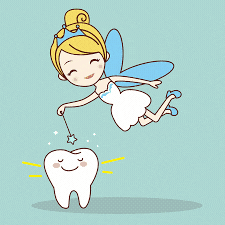As a field that impacts our daily lives, dentistry is often surrounded by numerous myths and misconceptions. These dental myths can sometimes lead to misunderstandings, prevent people from seeking proper dental care, and even harm their oral health. In this blog post, we aim to debunk some of the most common dental myths and separate the facts from fiction. So let's dive in and set the record straight!
Myth:
"Brushing harder cleans teeth better."
Fact:
Brushing harder does not equate to better cleaning. In fact, brushing too hard can damage your tooth enamel and irritate your gums. Instead, focus on using a soft-bristled toothbrush and gentle, circular motions to effectively remove plaque and debris from your teeth.
Remember, it's the technique and consistency that matter, not excessive force.
Myth:
"Sugar is the sole cause of tooth decay."
Fact:
While sugar does contribute to tooth decay, it is not the only culprit. Dental decay occurs when bacteria in the mouth feed on carbohydrates, producing acid that attacks tooth enamel. This means that starchy foods like chips and crackers can also lead to tooth decay.
Maintaining good oral hygiene and regular dental check-ups are essential for preventing tooth decay, regardless of the source of carbohydrates.
Myth:
"Whitening toothpaste can dramatically whiten your teeth."
Fact:
Whitening toothpaste can remove surface stains and make your teeth appear slightly brighter. However, they are not as effective as professional teeth whitening treatments. Whitening toothpaste cannot change the natural color of your teeth or lighten deep stains. If you desire significant whitening results, consult your dentist for professional options.
Myth:
"You should avoid the dentist if your teeth don't hurt."
Fact:
Dental pain is often a sign of advanced dental issues. Regular dental check-ups are crucial to detect and prevent problems before they become painful or more severe. Dentists can identify early signs of tooth decay, gum disease, or other oral health concerns that may not be noticeable to you. Prevention and early intervention are key to maintaining a healthy smile.
Myth:
"Chewing sugar-free gum can replace brushing."
Fact:
While sugar-free gum can stimulate saliva production, which helps neutralize acids and wash away food particles, it cannot replace proper brushing and flossing. Gum chewing should be seen as a supplement to regular oral hygiene practices, not a substitute. It is still essential to brush your teeth twice a day and floss daily for optimal oral health.
Myth:
"Baby teeth don't matter; they will fall out anyway."
Fact: Baby teeth play a vital role in a child's development and oral health. They help with proper speech development, chewing, and guiding the eruption of permanent teeth. Neglecting baby teeth can lead to dental problems and affect the alignment of permanent teeth. Ensure your child practices good oral hygiene and visits the dentist regularly, even for their baby teeth.
Myth:
"You can straighten your teeth with DIY methods."
Fact:
DIY teeth straightening methods, such as using rubber bands or online aligners without professional supervision, can lead to irreversible damage and poor results. Orthodontic treatment should be done under the guidance of a qualified dentist or orthodontist to ensure effective and safe tooth movement.
Conclusion:
Dental myths can mislead and hinder proper oral care. By debunking these common misconceptions, we can promote accurate information and encourage good dental habits. Remember, consult your dentist for personalized advice and maintain regular dental visits to ensure a healthy and beautiful smile. Stay informed, separate fact from fiction, and prioritize your oral health for a lifetime of happy smiles!

.jpeg)



.jpeg)